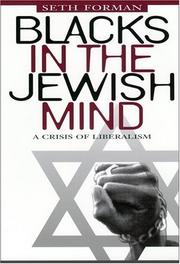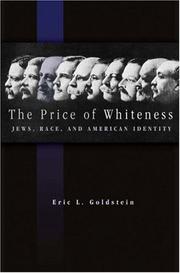| Listing 1 - 10 of 13 | << page >> |
Sort by
|
Book
ISBN: 3473584290 9783473584291 Year: 2013 Publisher: Ravensburg Ravensburger Buchverlag
Abstract | Keywords | Export | Availability | Bookmark
 Loading...
Loading...Choose an application
- Reference Manager
- EndNote
- RefWorks (Direct export to RefWorks)
Deutsche. --- Exil. --- Flucht. --- Juden. --- Jüdin. --- Vergangenheitsbewältigung. --- Geschichte 1933. --- Geschichte 1940-1945. --- Geschichte 1956. --- Berlin. --- London. --- English literature

ISBN: 1571819045 184545295X 9781571819048 157181295X 178238961X Year: 2005 Publisher: New York, N.Y. Berghahn
Abstract | Keywords | Export | Availability | Bookmark
 Loading...
Loading...Choose an application
- Reference Manager
- EndNote
- RefWorks (Direct export to RefWorks)
Since 1989, two sites of memory with respect to the deportation and persecution of Jews in France and Germany during the Second World War have received intense public attention: the Vélo d'Hiver (Winter Velodrome) in Paris and the Monument for the Murdered Jews of Europe or Holocaust Monument in Berlin. Why is this so? Both monuments, the author argues, are unique in the history of memorial projects. Although they are genuine "sites of memory", neither monument celebrates history, but rather serve as platforms for the deliberation, negotiation and promotion of social consensus over the memorial status of war crimes in France and Germany. The debates over these monuments indicate that it is the communication among members of the public via the mass media, rather than qualities inherent in the sites themselves, which transformed these sites into symbols beyond traditional conceptions of heritage and patriotism.
holocaust --- Architecture --- Jewish religion --- Berlin --- Paris --- Holocaust memorials --- Holocaust, Jewish (1939-1945) --- Memory --- Influence --- Social aspects --- Vélodrome d'hiver (Paris, France) --- Denkmal für die ermordeten Juden Europas (Berlin, Germany) --- Denkmal für die ermordeten Juden Europas (Berlin, Germany) --- Holocaust memorials. --- Influence. --- Social aspects. --- Denkmal für die ermordeten Juden Europas (Berlin, Germany). --- Vélodrome d'hiver (Paris, France). --- Holocaust, Jewish (1939-1945) - Influence --- Memory - Social aspects --- Vélodrome d'hiver (Paris, France) --- Holocaust-Mahnmal (Berlin, Germany) --- Holocaust Memorial (Berlin, Germany) --- Memorial to the Murdered Jews of Europe (Berlin, Germany) --- Stelenfeld (Berlin, Germany) --- Retention (Psychology) --- Intellect --- Psychology --- Thought and thinking --- Comprehension --- Executive functions (Neuropsychology) --- Mnemonics --- Perseveration (Psychology) --- Reproduction (Psychology) --- Memorials

ISBN: 3633541632 9783633541638 Year: 2000 Publisher: Frankfurt am Main Jüdischer Verlag
Abstract | Keywords | Export | Availability | Bookmark
 Loading...
Loading...Choose an application
- Reference Manager
- EndNote
- RefWorks (Direct export to RefWorks)
Political philosophy. Social philosophy --- Jewish religion --- Jews --- German literature --- Antisemitism --- Zionism. --- Politieke filosofie. --- Joden. --- Judeus --- Anti-semitismo. --- Sionismo. --- Tradição judaica. --- Literatura alemã. --- Geschichte. --- Juden. --- Antisemitism. --- Ethnic relations. --- Jews. --- Jewish authors --- History and criticism. --- Jewish authors. --- Germany --- Germany.

ISBN: 0253210410 0253330130 9780253330130 9780253210418 Year: 1996 Publisher: Bloomington, Ind. Indiana University Press
Abstract | Keywords | Export | Availability | Bookmark
 Loading...
Loading...Choose an application
- Reference Manager
- EndNote
- RefWorks (Direct export to RefWorks)
Sephardim --- Jews --- Judaism --- History --- Congresses --- Sephardic rite --- Judaïsme --- Juifs --- Séfarades --- Joden. --- Congresses. --- Histoire --- Congrès. --- Mittelmeerraum. --- Juden. --- Herzliyya <1991> --- Sephardim. --- Herzliyya <1991>. --- History of Asia --- History of Africa --- Jewish religion --- anno 1800-1999 --- Middle East --- Mediterranean region --- Sephardim - Mediterranean Region - History - Congresses. --- Jews - Mediterranean Region - History - Congresses. --- Judaism - Sephardic rite - History - Congresses. --- Congrès
Periodical
Abstract | Keywords | Export | Availability | Bookmark
 Loading...
Loading...Choose an application
- Reference Manager
- EndNote
- RefWorks (Direct export to RefWorks)
Aleph explores the interface between Judaism and science and studies the interactions between science and Judaism throughout history. Aleph features full-length articles, brief communications, and notes on recently published books, as well as studies on related subjects that allow a comparative view, such as the place of science in other cultures. Aleph is a joint publication of the Sidney M. Edelstein Center for the History and Philosophy of Science, Technology, and Medicine and the Institute for Jewish Studies, both at The Hebrew University of Jerusalem, and Indiana University Press.
Arts and Humanities --- Religion --- Society and Culture --- Judaism and science --- Judaism and science. --- Judaïstiek. --- Jodendom. --- Wetenschapsgeschiedenis (wetenschap) --- Zeitschrift --- Naturwissenschaften --- Geschichte --- Science --- Judaism --- Religion and Science. --- history. --- Juden. --- Science and Religion --- Science and Judaism --- Landesgeschichte --- Regionalgeschichte --- Ortsgeschichte --- Zeitgeschichte --- Geschichtsphilosophie --- Vergangenheit --- Naturforschung --- Naturlehre --- Naturwissenschaft --- Wissenschaft --- Naturwissenschaftler --- Periodikum --- Zeitschriften --- Presse --- Fortlaufendes Sammelwerk
Book
ISBN: 9780691178592 0691178593 Year: 2019 Publisher: Princeton, N.J. Princeton University Press
Abstract | Keywords | Export | Availability | Bookmark
 Loading...
Loading...Choose an application
- Reference Manager
- EndNote
- RefWorks (Direct export to RefWorks)
The Promise and Peril of Credit takes an incisive look at pivotal episodes in the West's centuries-long struggle to define the place of private finance in the social and political order. It does so through the lens of a persistent legend about Jews and money that reflected the anxieties surrounding the rise of impersonal credit markets. By the close of the Middle Ages, new and sophisticated credit instruments made it easier for European merchants to move funds across the globe. Bills of exchange were by far the most arcane of these financial innovations. Intangible and written in a cryptic language, they fueled world trade but also lured naive investors into risky businesses. Francesca Trivellato recounts how the invention of these abstruse credit contracts was falsely attributed to Jews, and how this story gave voice to deep-seated fears about the unseen perils of the new paper economy. She locates the legend's earliest version in a seventeenth-century handbook on maritime law and traces its legacy all the way to the work of the founders of modern social theory--from Marx to Weber and Sombart. Deftly weaving together economic, legal, social, cultural, and intellectual history, Trivellato vividly describes how Christian writers drew on the story to define and redefine what constituted the proper boundaries of credit in a modern world increasingly dominated by finance.
History of Europe --- anno 1600-1699 --- anno 1700-1799 --- anno 1800-1899 --- anno 1900-1909 --- anno 1910-1919 --- Credit --- Contracts --- Bills of exchange --- Marine insurance --- Usury --- Jewish capitalists and financiers --- Jewish businesspeople --- Jews --- Contracts. --- Credit. --- Jews. --- Handel --- Juden --- Kredit --- Legende --- Literatur --- Wechsel --- Kreditrisiko --- History. --- Public opinion --- Economic conditions. --- Europe --- Europe. --- Europa --- Commerce

ISBN: 0814728901 0585318751 0814726801 081472681X 9780814726815 9780814728901 9780585318752 9780814726808 Year: 1998 Publisher: New York, N.Y. New York University Press
Abstract | Keywords | Export | Availability | Bookmark
 Loading...
Loading...Choose an application
- Reference Manager
- EndNote
- RefWorks (Direct export to RefWorks)
Since the 1960s the relationship between Blacks and Jews has been a contentious one. While others have attempted to explain or repair the break-up of the Jewish alliance on civil rights, Seth Forman here sets out to determine what Jewish thinking on the subject of Black Americans reveals about Jewish identity in the U.S. Why did American Jews get involved in Black causes in the first place? What did they have to gain from it? And what does that tell us about American Jews? In an extremely provocative analysis, Forman argues that the commitment of American Jews to liberalism, and their historic definition of themselves as victims, has caused them to behave in ways that were defined as good for Blacks, but which in essence were contrary to Jewish interests. They have not been able to dissociate their needs--religious, spiritual, communal, political--from those of African Americans, and have therefore acted in ways which have threatened their own cultural vitality. Avoiding the focus on Black victimization and white racism that often infuses work on Blacks and Jews, Forman emphasizes the complexities inherent in one distinct white ethnic group's involvement in America's racial dilemma.
African Americans --- Liberalism --- Relations with Jews. --- History --- History of North America --- Sociology of minorities --- Jewish religion --- anno 1900-1999 --- African American-Jewish relations --- Jewish-African American relations --- Jews --- Negro-Jewish relations --- Relations with African Americans --- Relations with Jews --- United States --- 20th century --- 15.85 history of America. --- Geschiedenis van Noord-Amerika. --- Joden. --- Joodse godsdienst. --- Rassenverhoudingen. --- Sociologie van de minderheden. --- Zwarten. --- anno 1900-1999. --- Juden. --- Schwärze. --- USA. --- Verenigde Staten.

ISBN: 3492003486 9783492003483 Year: 1973 Publisher: München Piper
Abstract | Keywords | Export | Availability | Bookmark
 Loading...
Loading...Choose an application
- Reference Manager
- EndNote
- RefWorks (Direct export to RefWorks)
German literature --- Thematology --- Duits. --- Joden. --- Schrijvers. --- Juifs dans la litterature allemande. --- Schriftsteller --- Aufsatzsammlung --- Jews --- Judaism and literature --- Jews in literature. --- Littérature allemande --- Juifs --- Judaïsme et littérature --- Juifs dans la littérature --- Jewish authors --- History and criticism. --- Intellectual life. --- Ecrivains juifs --- Histoire et critique --- Vie intellectuelle --- Geschichte 1800-1970 --- Deutschland --- Juden --- 323.1:830"19" --- 830 "19" --- -Jews --- -Jews in literature --- Hebrews --- Israelites --- Jewish people --- Jewry --- Judaic people --- Judaists --- Ethnology --- Religious adherents --- Semites --- Judaism --- Nationale bewegingen. Nationalisme. Rassenpolitiek-:-Duitse literatuur--20e eeuw. Periode 1900-1999 --- Duitse literatuur--20e eeuw. Periode 1900-1999 --- -History and criticism --- Intellectual life --- 830 "19" Duitse literatuur--20e eeuw. Periode 1900-1999 --- 323.1:830"19" Nationale bewegingen. Nationalisme. Rassenpolitiek-:-Duitse literatuur--20e eeuw. Periode 1900-1999 --- Littérature allemande --- Judaïsme et littérature --- Juifs dans la littérature --- Jews in literature --- Jewish authors&delete& --- History and criticism --- Antisemitisme dans la litterature --- Juifs dans la litterature

ISBN: 9780691121055 0691121052 9780691136318 0691136319 Year: 2006 Publisher: Princeton, N.J. Princeton University Press
Abstract | Keywords | Export | Availability | Bookmark
 Loading...
Loading...Choose an application
- Reference Manager
- EndNote
- RefWorks (Direct export to RefWorks)
"The Price of Whiteness documents the uneasy place Jews have held in America's racial culture since the late nineteenth century. The book traces Jews' often tumultuous encounter with race from the 1870s through World War II, when they became vested as part of America's white mainstream and abandoned the practice of describing themselves in racial terms." "Today, despite the great success Jews enjoy in the United States, they still struggle with the constraints of America's black-white dichotomy. The Price of Whiteness concludes that while Jews' status as white has opened many doors for them, it has also placed limits on their ability to assert themselves as a group apart."--Jacket
History of North America --- Sociology of minorities --- anno 1800-1999 --- European Americans --- Jews --- Social integration --- Whites --- Race identity. --- Identity. --- Race identity --- United States --- Race relations. --- Ethnic relations. --- Identity --- Cultural assimilation --- Race question --- Ethnology --- Europeans --- 296 <73> --- 296 <73> Judaïsme. Jodendom--Verenigde Staten van Amerika. VSA. USA --- 296 <73> Judaisme--Verenigde Staten van Amerika. VSA. USA --- Judaïsme. Jodendom--Verenigde Staten van Amerika. VSA. USA --- Judaisme--Verenigde Staten van Amerika. VSA. USA --- White people --- White persons --- Caucasian race --- 15.85 history of America. --- Akkulturation. --- Américains d'origine européenne --- Assimilatie (sociologie). --- Ethnische Beziehungen. --- Ethnische Identität. --- Etnische identiteit. --- Identität. --- Intégration sociale --- Jews. --- Joden. --- Juden. --- Juifs --- Social integration. --- Identité ethnique. --- Ethnic identity. --- Identité --- USA. --- United States. --- États-Unis --- Relations interethniques. --- Relations raciales.

ISBN: 0295997532 9780295997537 0295980257 9780295980256 0295980222 9780295980225 Year: 2001 Publisher: Seattle, Wash. University of Washington Press
Abstract | Keywords | Export | Availability | Bookmark
 Loading...
Loading...Choose an application
- Reference Manager
- EndNote
- RefWorks (Direct export to RefWorks)
"Generations of tourists visiting Rome have ventured into the small section between the Tiber River and the Capitoline Hill whose narrow, dark streets lead to the charming Fountain of the Tortoises, the brooding mass of the Palazzo Cenci, and some of the best restaurants in the city. This was the site of the Ghetto, within whose walls the Jews of Rome were compelled to live from 1555 until 1870. In Theater of Acculturation, Kenneth Stow, leading authority on Italian Jews, probes Jewish life in Rome in the early years of the Ghetto."--Jacket.
Jews
---
Hebrews
---
Israelites
---
Jewish people
---
Jewry
---
Judaic people
---
Judaists
---
Ethnology
---
Religious adherents
---
Semites
---
Judaism
---
History
---
Rome (Italy)
---
Rome (Italy : Commune)
---
Rome (Italy : Governatorato)
---
Rūmah (Italy)
---
Roma (Italy)
---
Rom (Italy)
---
Rím (Italy)
---
Rzym (Italy)
---
Comune di Roma (Italy)
---
Rome
---
Ethnic relations.
---
Joden.
---
Getto's.
---
Juden
---
Getto
---
Jews.
---
Inter-ethnic relations
---
Interethnic relations
---
Relations among ethnic groups
---
Acculturation
---
Assimilation (Sociology)
---
Ethnic groups
---
Social problems
---
Sociology
---
Minorities
---
Race relations
---
Bibel
---
Römerbrief
---
Röm
---
Rom
---
Rm
---
Ro
---
R
---
Epistola ad Romanos
---
Epistula ad Romanos
---
<
| Listing 1 - 10 of 13 | << page >> |
Sort by
|

 Search
Search Feedback
Feedback About UniCat
About UniCat  Help
Help News
News